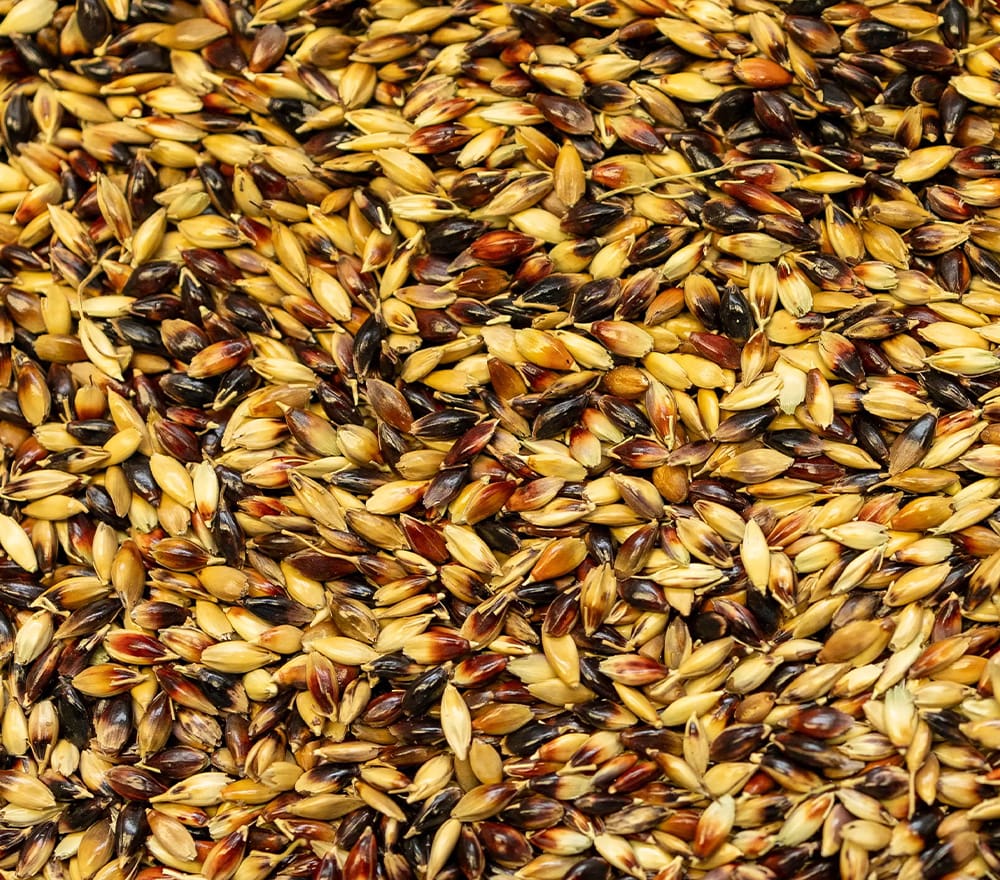Annual Forages
Maximize Forage Yield with Our Annual Forages
Discover fast growing annual and summer forage solutions tailored to your livestock and soil needs.

Annual Forage vs Summer Annual Forage:
Which is Right for You?

Annual Forages
These are versatile crops grown within a single season, providing rapid growth and high yields. They are commonly planted in spring or fall for grazing, hay, or silage production.

Summer Annual Forages
Specifically bred to thrive during hot, dry summer months, these forages grow quickly and are perfect for filling the gap when cool season grasses slow down.
Annual Forage Crops
| Forage Crop | Seeding Rate (lbs/acre) | Primary Use | Description |
|---|---|---|---|
| Buckwheat | 40-50 | Emergency Grain, Weed Control | Short-season crop, typically planted in July. Best in cool wet years. Does not set seed well in hot dry years. |
| Chicory | 2-8 | Grazing | Broad-leaved perennial herb, excellent feed value. Best in mixes with clover. Graze at 6-8 inches, leaving 2-3 inches stubble. |
| Field Peas | 50-100 | Silage | Typically seeded with oats to increase protein and palatability. Increases yield with adequate moisture. |
| Forage Sorghum | 6-12 (rows), 15-35 (broadcast) | Silage, Winter Grazing | High feed value, around 80-90% of corn silage. Risk of prussic acid poisoning after frost. BMR varieties improve digestibility. |
| Hay (Foxtail) Millets | 20-30 | Hay | Annual crop, excellent emergency hay. Grows well in sandy soils. Fast growing, matures in 60-75 days. |
| Japanese Millet | 25-35 | Hay | Grows 2-4 feet tall, best cut for hay at the dough stage. |
| Pearl Millet | 8-12 | Grazing, Hay | Very leafy, excellent regrowth after cutting or grazing. Safe for horses as it contains no prussic acid. Grows 6-10 feet tall. |
| Pasja Hybrid Forage Brassica | 4-6 | Grazing | Cross between rapeseed and forage turnips, no choking hazard, good drought tolerance. Dies with frost, suited for spring/summer seeding. |
| Radish | 5-12 | Grazing, Soil Nutrient Recycling | Large tap root, breaks up soil compaction and recycles nutrients. Best growth before frost. |
| Rapeseed | 4-8 | Grazing | Multi-stemmed, cabbage-like plant. Palatable to livestock. Good in moist, rich soils. |
| Sorghum-Sudangrass | 6-15 (rows), 20-35 (drilled) | Grazing, Silage | Hybrid between sorghum and sudangrass. Excellent regrowth after cutting. Risk of prussic acid poisoning after frost. BMR varieties offer higher digestibility. |
| Sudangrass | 20-30 | Grazing, Hay | Fine-stemmed, fast regrowth. Lower prussic acid risk than other sorghums. Good for hay and silage, drought-tolerant. |
| Teff | 6-8 | Grazing, Hay | Warm-season grass with rapid growth. Produces up to two cuttings per season. Sensitive to frost. |
| Turnips | 2-4 | Grazing | Grazed by livestock for both tops and roots. Tops have higher protein (20-25%) than roots. Ready for grazing in 45 days. |
| Appin Turnips | 2-4 | Grazing | Forage turnip variety. Produces more growing points and tonnage than other turnips. |
| Purple Top Turnips | 2-4 | Grazing | Produces larger turnips but less top growth than forage types. |
Summer Annual Forages
| Forage Crop | Seeding Rate (lbs/acre) | Primary Use | Height (ft) | Description |
|---|---|---|---|---|
| Sudangrass | 10-12 (rows), 20-30 (drilled) | Grazing, hay, green chop | 4-7 | Fine-stemmed, rapid regrowth, drought-tolerant. Best for grazing and hay due to quick drying stems. |
| Sorghum-Sudangrass | 6-15 (rows), 20-35 (drilled) | Silage, green chop | 24-30 inches | High-yielding, 50% of yield is in stems. Better for silage/green chop than for grazing. |
| Forage Sorghum | 8-10 | Silage, winter grazing | 8-13 | High yield, 80-90% feed value of corn silage. Avoid grazing due to prussic acid risk. |
| Pearl Millet | 8-12 | Grazing, hay | 18-24 inches | Leafy, excellent drought tolerance. Safe for horses, no prussic acid. Cut at 30-36 inches for hay. |
| Foxtail Millet | 20-30 | Hay | 75-90 days | Shallow-rooted, used only for hay. Should be cut as soon as heads form to avoid livestock injury. |
| Purple Top Turnip | 2-4 | Grazing | Cool-season crop that grows in spring and fall. Livestock consume both tops (17-24% protein) and bulbs (10-15% protein). | |
| Forage Turnip x Rapeseed (Pasja) | 3-5 | Grazing | Hybrid forage ready to graze 50 days after seeding. Drought-tolerant, does not form bulbs. Regrows after grazing. | |
| Oats and Peas Mixture | 100-120 | Grazing, hay, silage | Blend of 60% field peas and 40% oats. Increases protein and reduces NDF compared to straight oats. Harvest at boot stage. | |
| Tri-grain Forage Mix | 90-120 | Grazing, hay | Blend of oats, barley, and spring wheat. Produces high-quality forage for hay or grazing. |
Annual Forage Planting Guide
| Annual Forages | Seeding Rate #/a | lbs/Bu | Avg Seeds/lb | Seeding Date | Days to Germinate |
|---|---|---|---|---|---|
| Buckwheat | 40-50 | 48 | 15,000 | 6/1-7/31 | 14 |
| Dwarf Essex Rapeseed | 4-8 | 60 | 155,000 | 4/1-8/31 | 8 |
| Forage Sorghum | 8-10 | 40 | 26,000 | 5/20-7/31 | 10 |
| Foxtail Millet | 20-30 | 50 | 220,000 | 5/15-7/31 | 10 |
| Pearl Millet | 8-12 | 50 | 88,000 | 5/15-7/31 | 7 |
| Sorghum Sudangrass | 6-15 R, 20-35 D | 40 | 15,000 | 5/15-7/31 | 10 |
| Sudangrass | 10-12 R, 20-30 D | 40 | 35,000 | 5/15-7/31 | 10 |
| Turnips | 2-4 | 52 | 174,000 | 4/1-6/30 | 14 |
Custom Mixes
Not sure the best mix for your field?
